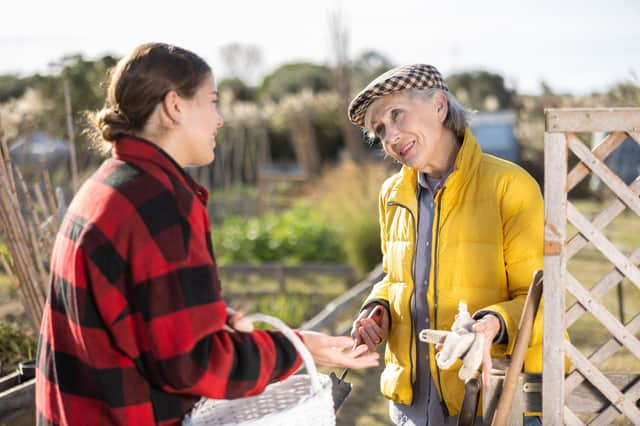Tips for positive neighbourly chat


But they did bring many neighbours closer together – with those living nearby being, in some cases, the only faces people saw regularly.
Yet the average Brit hasn’t spoken to their neighbour for three weeks, according to recent research.
Advertisement
Hide AdAdvertisement
Hide AdThe study of 2,000 UK adults found that one in 20 can’t remember the last time they spoke to a neighbour face-to-face, and a tenth miss the community friendliness they felt during the UK’s lockdowns.


More than half of the nation said passive aggressive messages are rife in their online neighbourhood groups, in the research for mobile network giffgaff.
The poll, exploring community spirit, revealed that while the average Brit hasn’t spoken to their neighbour in weeks, many would like to be better friends with them.
Just under half reported they’re likely to stop and chat if they see their neighbour out and about, with conversations typically about the weather, pets and bin days.
Advertisement
Hide AdAdvertisement
Hide AdBut just under a fifth admitted to finding it easier to voice their thoughts online on community groups, than approach a neighbour in person.
“It can be difficult to make time for our neighbours,” said communications expert Amira Mansour.
"The research found many don’t have close relationships with people in their local area, and this can lead to feelings of isolation.
“However, ironically, these people shouldn’t feel alone, as it seems there are millions in the same boat and there are ways that we can improve our communication with those in our community.”
Amira has these tips for good neighbourly conversations:
1 Small talk can be a good thing
Advertisement
Hide AdAdvertisement
Hide AdFind ways to start to interact with neighbours on a more daily basis so that when situations that bother you crop up, you’ve already got a relationship with them.
You can create small talk by staying curious, asking questions and listening to how they respond.
2 Keep it short
As Brits we love to over explain things but it’s important to keep your points clear, succinct and on topic.
It’s helpful to prepare what you want to say beforehand to help you feel more confident in addressing the situation.
3 Stop focusing on being right
Ask yourself how you can see it from their perspective and try focusing on a solution that works for you all.